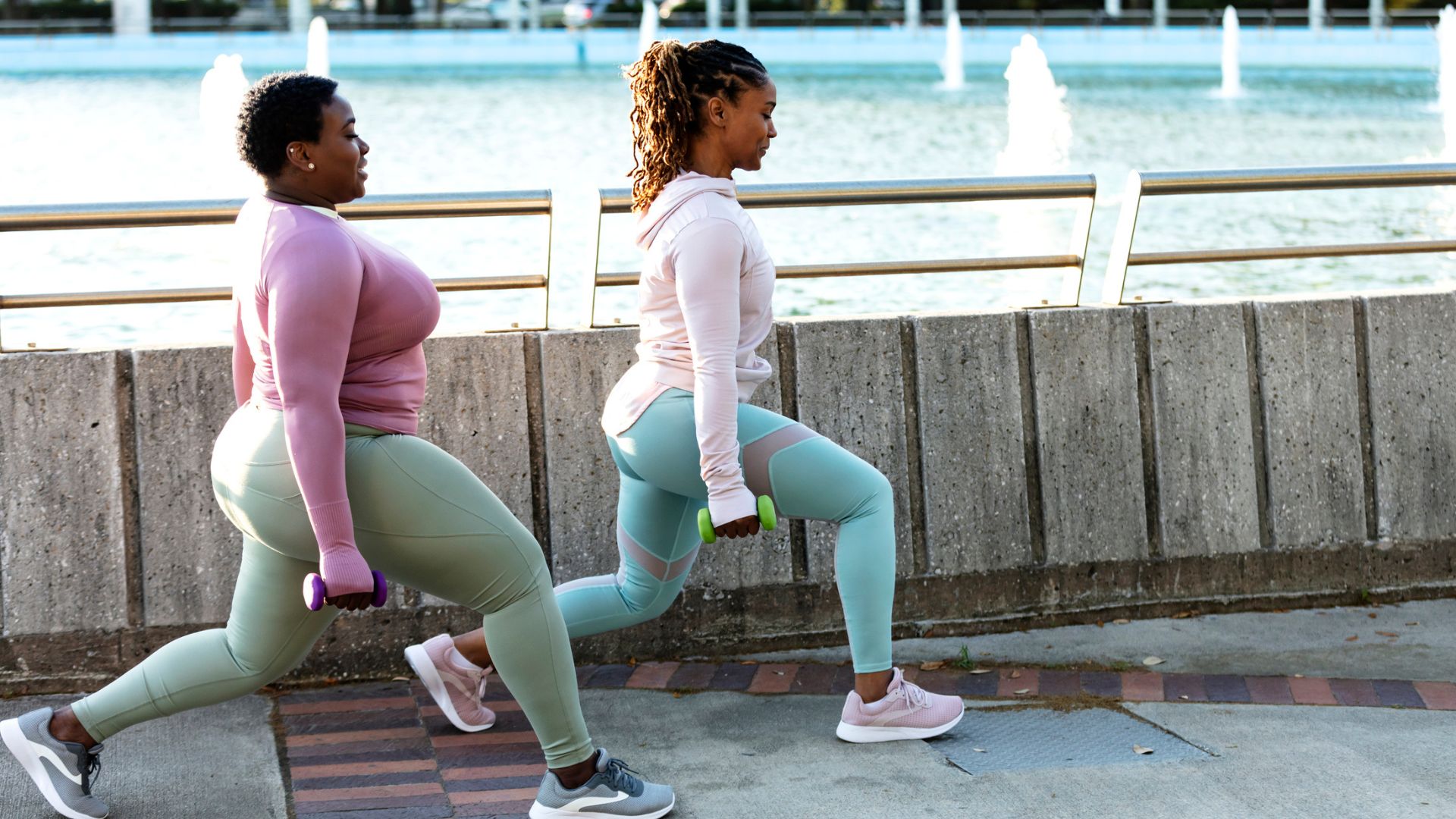
If I could only train one body part for the rest of my life, it would be my legs.
Not only do leg workouts build a stronger lower body, they will also improve your balance, posture, and mobility, as well as reducing your risk of injuries and raising your metabolism.
You don't need much to start either; this six-move workout from trainer Rachael Sacerdoti uses just seven moves, two light dumbbells and a resistance band to work all your leg muscles.
How to do the workout
Perform the seven exercises below as a circuit, resting as little as possible between moves. After you've finished all seven, take a 30-second breather then start again, repeating this sequence for three rounds in total. This should take about 20 minutes.
Before you get started, watch Sacerdoti's demonstrations of each exercise, then try practicing each one to perfect your form. This is important, as getting the technique right can help you get the most from your training and avoid injury.
- Dumbbell squat pulses x15
- Dumbbell Romanian deadlifts x15
- Hamstring curls x15 on each leg
- Dumbbell walking lunges x8 on each leg
- Banded fire hydrants x12 on each leg
- Banded clamshells x12 on each leg
- Reverse lunge pulses x12 on each leg
Watch Rachael Sacerdoti's lower-body workout
What are the benefits?
"These moves engage and target the major muscle groups that support your entire body [your legs and core] resulting in significant improvements in overall performance while promoting healthier movement patterns in your daily life," says Sacerdoti.
"Furthermore, developing a strong lower body not only reduces the risk of injuries but also contributes to the management of chronic conditions like arthritis, heart disease, and diabetes."
Sacerdoti goes on to explain how the addition of dumbbells will allow you to take advantage of the progressive overload principle to challenge your muscles, "build strength and sculpt your lower body."
Developing your muscles, particularly in large leg muscles like the hamstrings, quadriceps and glutes, is also a great way to boost your metabolism (the amount of energy you burn during the day).
Part of the reason building muscle burns fat is because muscle is a metabolically active tissue, so building more muscle will increase the number of calories your body burns at rest.
Fuelling your recovery
Another key component of gaining muscle is nutrition and, more specifically, protein. This provides the building blocks your body needs to maintain, repair and build new muscle after a workout.
If you're looking to boost your daily protein intake — P3RFORM performance coach and nutritionist Lily Chapman advises aiming for at least 1.2g of protein per kilogram of body weight each day — then supplements can help.
The best protein powders for weight loss are a great place to start, as they contain less sugar and fat than many standard powders, helping you build lean muscle, recover faster, and feel fuller for longer.







